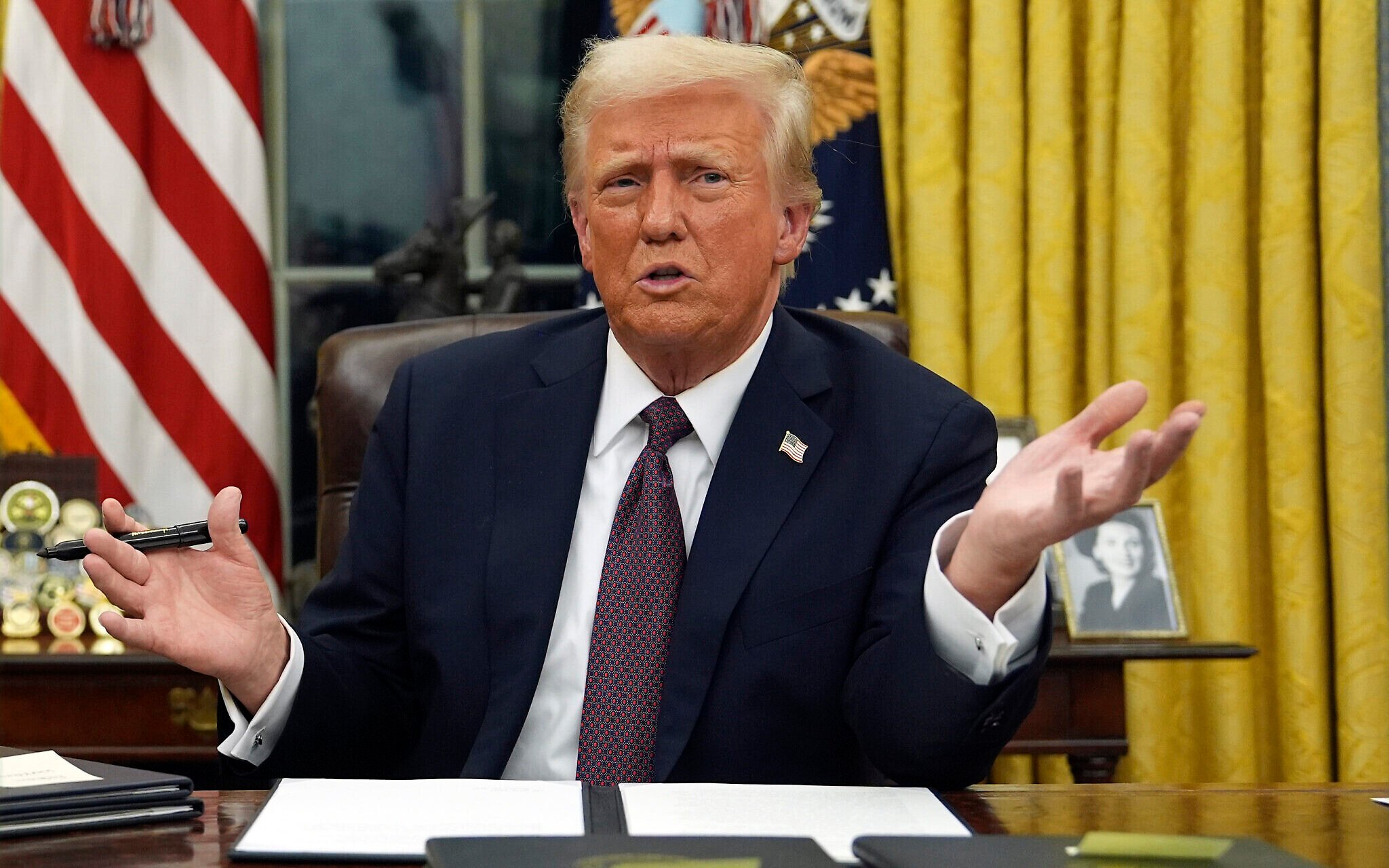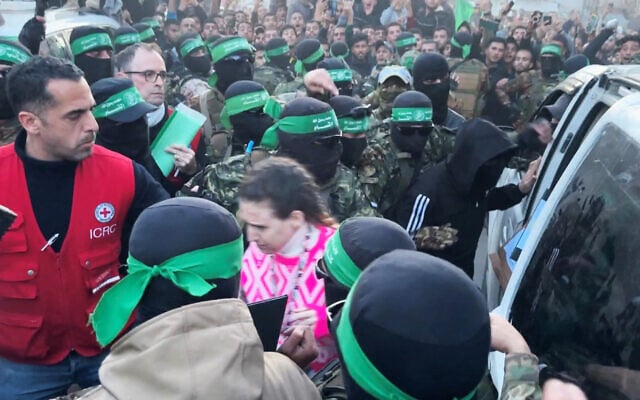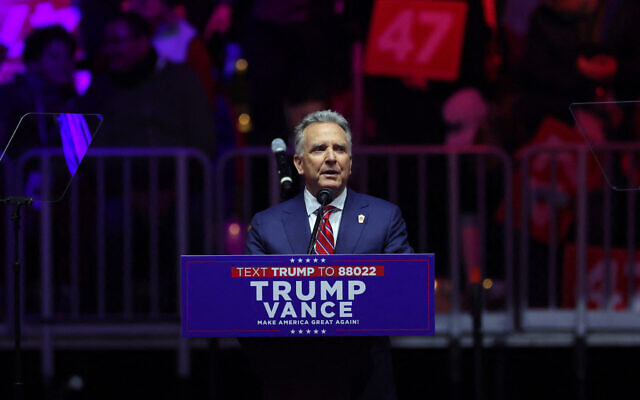



US President Donald Trump said Monday that he’s “not confident” the Gaza ceasefire and hostage release deal that came into effect the previous day would be upheld through all three phases.
“It’s not our war. It is their war. I am not confident,” Trump said in response to a question from reporters while signing executive orders in the Oval Office, shortly after his inauguration.
“But I think they’re very weakened on the other side,” Trump said, apparently referring to Hamas.
Turning to Gaza, where huge swaths of the Strip have been turned to rubble amid 15 months of fighting, Trump said the enclave “is like a massive demolition site” that will have to be “rebuilt in a different way.”
The real estate mogul noted that Gaza is in a “phenomenal location” along the Mediterranean Sea with the “best weather,” adding that “beautiful things could be done over there, fantastic things.”
When asked if he’ll help rebuild Gaza, the president responded: “I might.”
However, when questioned as to who will govern Gaza after the war, Trump said it can’t be Hamas, since “they didn’t exactly run it well” and “most of them are dead.”
The ceasefire-hostage deal between Israel and the Palestinian terror group came into effect Sunday morning, bringing a halt to the war which began when Hamas-led terrorists invaded southern Israel, killing over 1,200 people and kidnapping 251 hostages during their October 7, 2023, onslaught.
Arab officials familiar with the negotiations believe that Trump’s pressure was critical in securing a breakthrough that led to the three-phase accord. However, relatives of many of those held hostage are concerned that the staged plan will only free some captives, with the others left at the mercy of future talks and the maintenance of the fragile truce.
Far-right Finance Minister Bezalel Smotrich has said Prime Minister Benjamin Netanyahu promised him that fighting will be renewed after the first phase ends.
Speaking on Monday, Trump also reiterated his belief that Hamas wouldn’t have carried out the October 7 onslaught if he had been president at the time, because the terror group’s Iran backers had been “broke” due to his maximum pressure sanctions regime.
“Now they’re rich, but weakened in a different way,” he said, highlighting an IDF operation that reportedly took out Tehran’s air defenses and another that saw the mass detonation of communication devices belonging to Hezbollah operatives in Lebanon.
The newly inaugurated US president, who is reportedly fixated on winning a Nobel Peace Prize, also said that he thinks a normalization deal might be signed between Israel and Saudi Arabia “soon,” if not by the end of the year.
Earlier Monday, Trump’s new Mideast envoy Steve Witkoff pledged to expand the Abraham Accords, the US-backed agreements struck during Trump’s first term that normalized Israel’s relations with several Arab countries.
“A stable and prosperous Middle East is not an unattainable dream. It is a goal within our reach,” Witkoff said, introducing Trump at an inauguration rally.
The envoy also laid out the new administration’s four-pronged approach to the region: respect for sovereignty, economic prosperity as a bridge to stability, courageous diplomacy, and reciprocity and accountability.
“We are done carrying the financial burden for nations that are unwilling to fund their own progress. The days of blank checks are over,” Witkoff said.
In an apparent signal toward that approach, Trump later ordered a 90-day pause in foreign development assistance pending assessments of efficiencies and consistency with his foreign policy, in a move that would likely impact US aid to Palestinians.
“All department and agency heads with responsibility for United States foreign development assistance programs shall immediately pause new obligations and disbursements of development assistance funds,” read the executive order signed by Trump just hours after he took office.
It was not immediately clear how broad the order was and what programs, countries, non-governmental organizations and international organizations would be affected by the move.
It was also unclear what funding could be cut given the US Congress sets the federal US government budget. However, the order echoed a return to the approach Trump took during his first term in office between 2017 and 2021.
Agencies contributed to this report.



